PRODUCTS
CONTACT US
Ningbo Nide International Co., Ltd.
一一
· Contact person:Jack Zeng
· Mob/Whatspp/WeChat:0086-13738869026
· Email:emarketing@nide-group.com;marketing4@nide-group.com
· Add:No. 169, Wohushan Road, Daqi Subdistrict, Beilun District, Ningbo, China
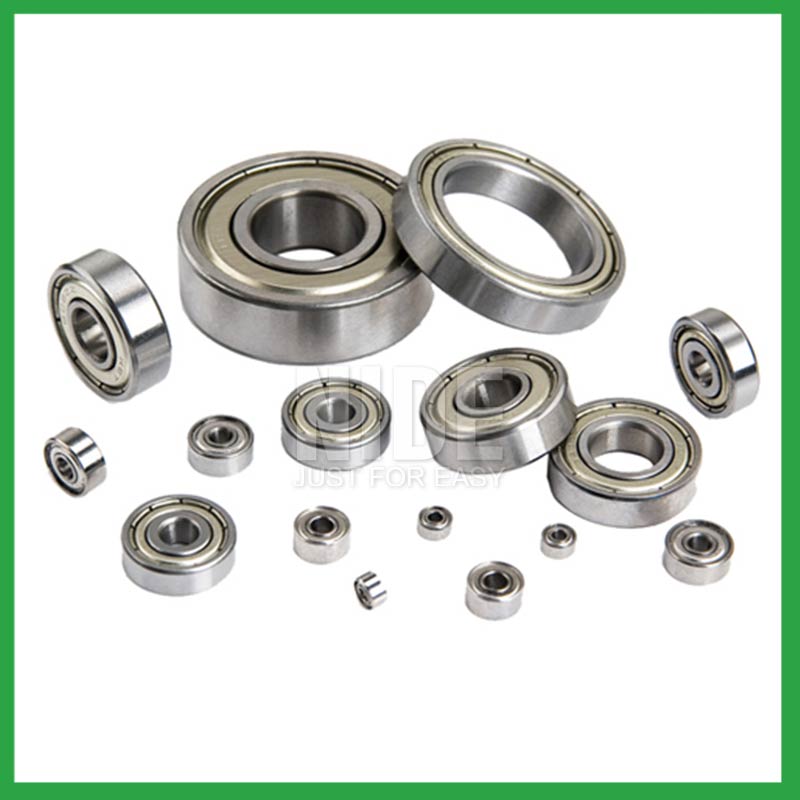
Nide team could manufacture ball bearing as per customer’s drawing and samples.
If customer only has samples, we could also design drawing fo r our customer.
We also provide customized service.
Our ball bearing is widely applied the different industrials.
Haishu Nide International is one of the leading bearing manufacturers in China. We are a well-known supplier of high-quality motor cover and lamination,fan,shaft,magnet,carbon brush,thermal protector,ball bearing. Our products are widely used in fields such as electric automotive motor,air condition motor,BLDC motor,compress motor,fan motor,water pump motor,servo motor,washing machine motor. We are proud to provide customers with the expected product knowledge, applied professional knowledge, quality control, and consistent reliable service.
We have modern computerized machinery and equipment to produce high-precision bearings. Our company is also equipped with complete chemical and metallurgical laboratories as well as standard room facilities.Nide has offices in India, Brazil, Korea, Turkey, and Argentina, good sales and service net work allow us to access and offer service to customers over the world easily and promptly.
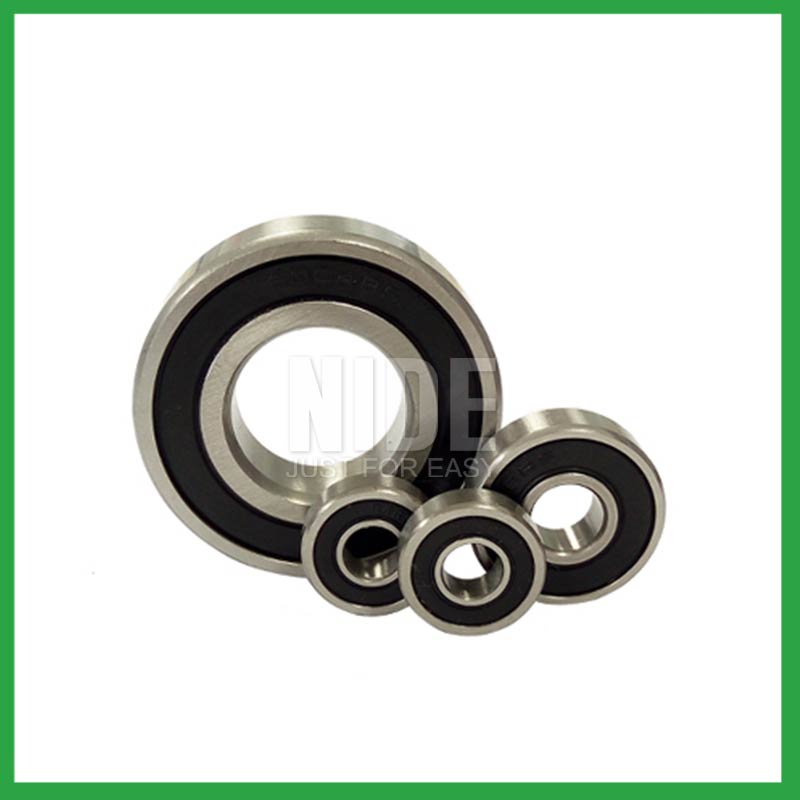
| Parameter | Information |
|---|---|
| Product Name | ball bearing damascus steel |
| Brand Name | NIDE |
| Place of Origin | Ningbo,Zhejiang,China |
| Material | ceramics, etc. |
| Structure | Deep Groove |
| Color | Customized Color |
| Delivery Time | 5-7days |
| Port | Ningbo/Shanghai |
| Export region | Asia,America,Africa |
| Export Country | India,Brazil,South Korea,Costa Rica,Cayman Islands,Palau,New Caledonia,Cambodia...etc |
| Application | automotive engines,aviation engines, etc. |
| OEM/ODM | Support |
| Size | Customized size |
| Stock | In Stock |
| Feature | Good wear resistance,High precision...etc |
| MOQ | 10 pieeces(Specific according to the model) |
| Certification | ISO9001,CE-stator coil winding inserting machine,CE-stator coil winding machine,etc |
| Supply Ability | 100000-500000 Piece/Pieces per Month |
| Lubricate | Oil Grease |
| Packaging Details | Suitable for sea transportation |
| Lead time (days) | 15-20 (To be negotiated) |
Please note: The above table data is for reference only. For specific information, please contact us.
ball bearing damascus steel is a component with a ball as the rolling element, consisting of an inner ring, an outer ring, and a ball. They form a closed raceway between the rings, and the ball rolls through a curved surface in the raceway.
Before use, the model, size, and design of the ball bearing should be confirmed to ensure suitable application;
During installation, the installation load of the ball bearing should be minimized as much as possible to avoid unnecessary damage;
The bearing shaft and the bearing frame should be stable at the same time to avoid excessive tension.
Ball bearings have many advantages, making them highly competitive in the market.
Firstly, they are very durable and have good wear performance, making their service life longer than many other types of bearings.
Secondly, they are easy to install and can provide low friction performance in various applications.
Thirdly, they require a relatively low level of maintenance, making them cost-effective.
In addition, compared to many other types of bearings, their purchase cost is relatively low, making them an economical choice.
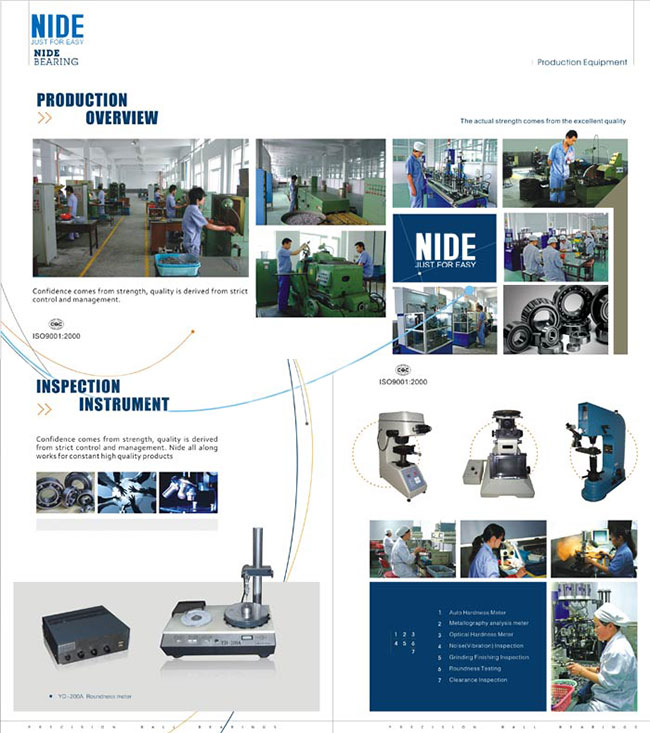
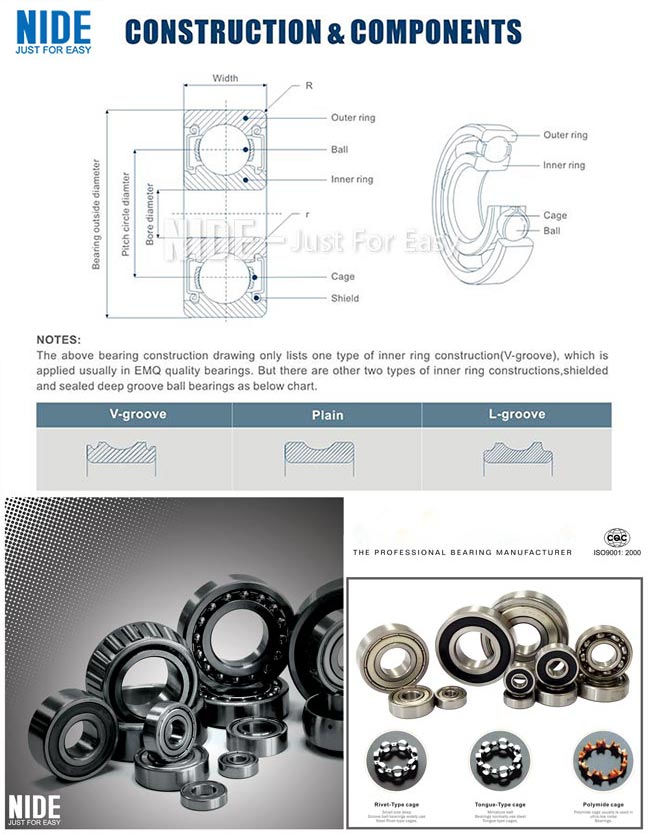
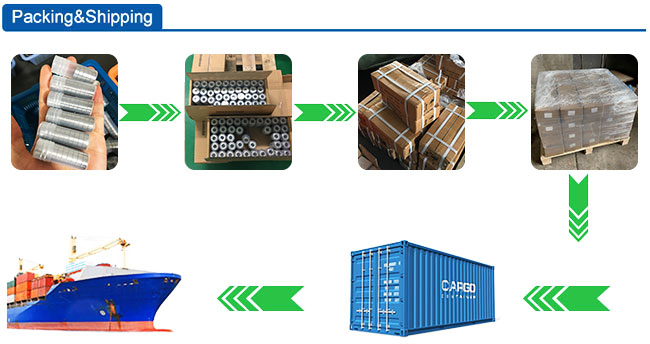
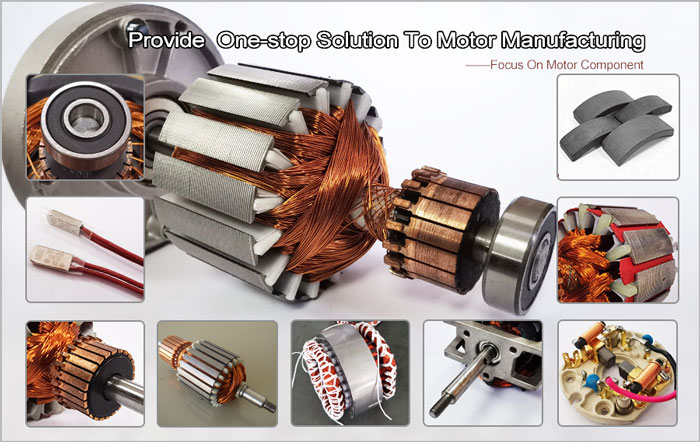
ball bearing damascus steel---FAQs Guide
2.Do ball bearing damascus steel come in various tolerance classes?
3.Can ball bearing damascus steel operate in high-temperature environments like industrial ovens or furnaces, and how are they protected from heat-related damage?
4.Can ball bearing damascus steel handle shock loads and high-impact conditions in heavy machinery?
5.Are there self-aligning ball bearing damascus steel that accommodate misalignment and shaft deflection in rotating equipment?
6.How do preloaded ball bearing damascus steel enhance rigidity and reduce clearance in high-precision applications?
7.How do preload adjustments in ball bearing damascus steel affect their performance and suitability for high-precision tasks?
8.What is the significance of ball bearing damascus steel lubrication, and how does it affect bearing lifespan and performance?
9.What is the production capacity of the factory for ball bearing damascus steel?
10.What are the after-sales services available for ball bearing damascus steel?
11.What is the role of ball bearing damascus steel in reducing friction and energy loss in rotating machinery?
12.How do cage materials and designs impact ball bearing damascus steel performance and stability?
13.Can ball bearing damascus steel be used in vacuum or cleanroom environments, and what measures are taken to prevent outgassing or contamination?
14.What are the considerations for choosing between open, shielded, or sealed ball bearing damascus steel in specific applications?
15.How do manufacturers ensure the quality and reliability of ball bearing damascus steel through material selection and precision machining?
16.What is the role of ball bearing damascus steel in reducing friction and wear in automotive applications, such as wheel hubs and transmissions?
1.What is the load distribution within a ball bearing damascus steel, and how does it vary between different bearing configurations?
The load distribution between the rolling elements and raceway is crucial in performance evaluation of rolling element bearings. Determine the load distribution by measuring the strain response at the bearing surface with a notched housing. Finite element analysis shows that the introduction of notches does not affect the load distribution. An experimental system was developed to investigate the load distribution in a cylindrical roller bearing. The experimental static load distribution agrees well with the theoretical calculation. The dynamic load at specific position of load zone reflects the manufacture difference among rollers and dynamic balance of distributing loads.
2.Do ball bearing damascus steel come in various tolerance classes?
Bearing tolerances are standardized by classifying bearings into the following six classes (accuracy in tolerances becomes higher in the order described): 0, 6X, 6, 5, 4 and 2.
3.Can ball bearing damascus steel operate in high-temperature environments like industrial ovens or furnaces, and how are they protected from heat-related damage?
ball bearing damascus steel are capable of working at temperatures up to +842°F (+450 °C). Special lubricants, seals and coatings make this possible by protecting the ball bearings from heat damage.
4.Can ball bearing damascus steel handle shock loads and high-impact conditions in heavy machinery?
As a general rule, ball bearing damascus steel are used at higher speeds and lighter loads than are roller bearings. Roller bearings perform better under shock and impact loading. Ball bearings tolerate misalignment better than roller bearings do. Roller bearings can handle heavy combined radial and thrust loads.
5.Are there self-aligning ball bearing damascus steel that accommodate misalignment and shaft deflection in rotating equipment?
These ball bearing damascus steel are particularly suitable for applications where misalignment can arise from errors in mounting or shaft deflection. A variety of designs are available with cylindrical and taper bores, with seals and adapter sleeves and extended inner rings.
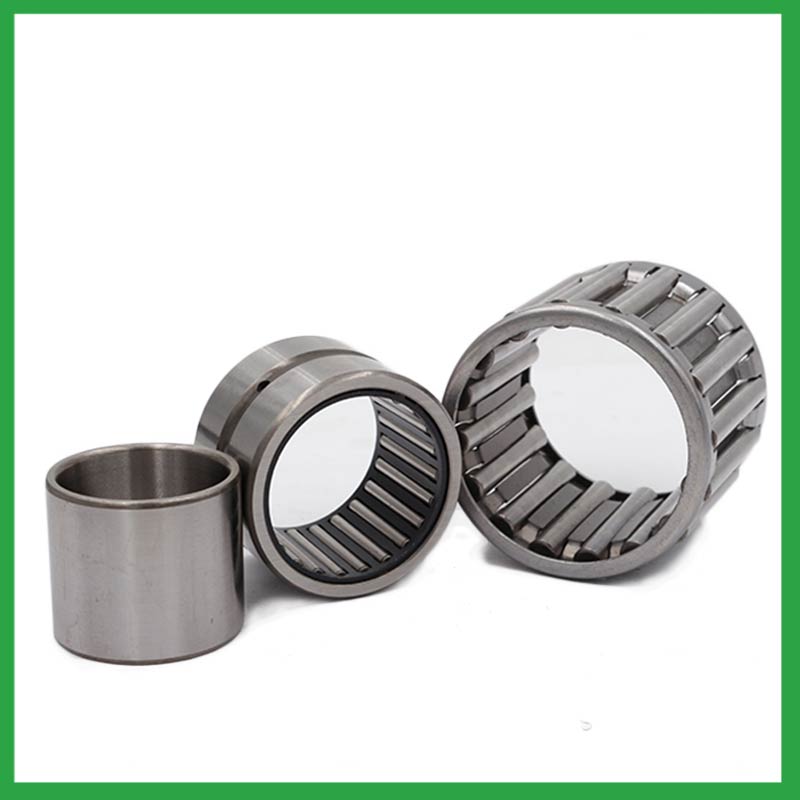
6.How do preloaded ball bearing damascus steel enhance rigidity and reduce clearance in high-precision applications?
Enhance Rigidity: By applying a controlled axial force, preload increases the bearing's resistance to external forces and moments. This heightened rigidity is essential in applications where any deflection or misalignment must be minimized, such as in machine tools or robotic systems.
7.How do preload adjustments in ball bearing damascus steel affect their performance and suitability for high-precision tasks?
Benefits of Preloading a Bearing
Optimizes the ball spin to roll ratio.
Increases the rigidity of an application.
Protects from excessive ball skidding.
Decreases application vibration and sliding friction.
High running accuracy (even if load conditions keep changing)
Increases bearing load capacity.
8.What is the significance of ball bearing damascus steel lubrication, and how does it affect bearing lifespan and performance?
Bearing lubrication is vital for preserving the performance and lifespan of rolling element bearings. Lubrication helps separate moving parts relative to one another, such as rollers and raceways or balls, to prevent wear and tear and friction.
9.What is the production capacity of the factory for ball bearing damascus steel?
The production capacity of Ningbo Haishu Nide International is:50000000pcs/month
10.What are the after-sales services available for ball bearing damascus steel?
If you find problems or failures in the assembly or use of the bearings , which needs to consult and other services, please feedback to Nide International in time.
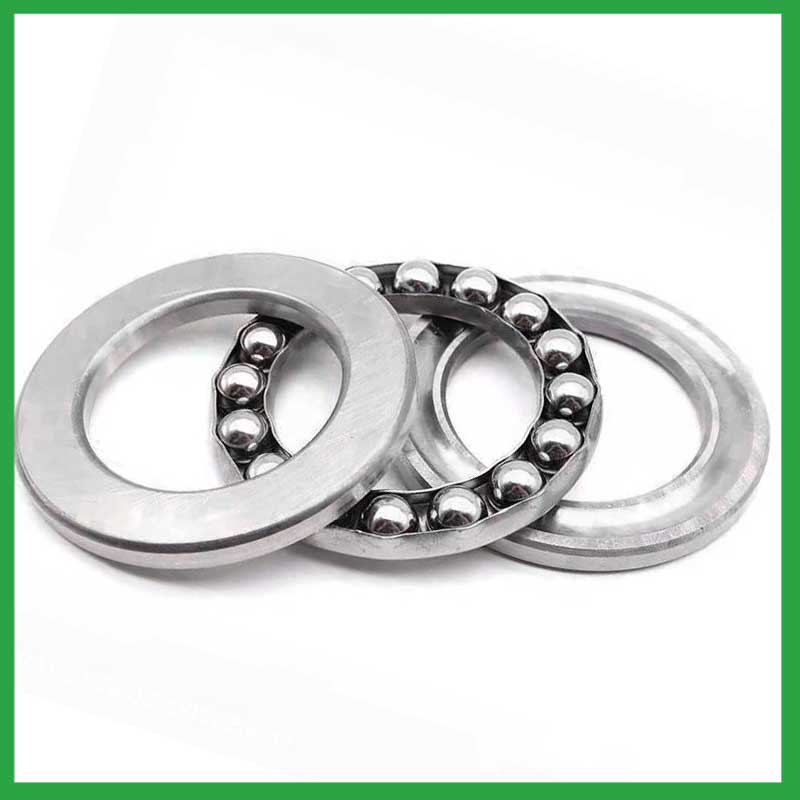
11.What is the role of ball bearing damascus steel in reducing friction and energy loss in rotating machinery?
ball bearing damascus steel reduce friction by using smooth balls lubricated with oil or grease that freely roll between a smooth inner and outer surface. The main concept of the ball bearing is that objects that roll past each other produce less friction than if the objects were sliding against each other.
12.How do cage materials and designs impact ball bearing damascus steel performance and stability?
As the core component of rotating machinery, the performance and reliability of high-precision ball bearing damascus steel directly affect the overall performance and life of the machine and instrument . The increase of the rotational speed will aggravate the collision and friction of the cage, which will lead to the decrease of the rotational stability of the cage. The unstable movement of the cage could in turn lead to more severe collision and wear, thus reducing the life and reliability or even the destruction of the bearing.
Therefore, it is very necessary to study the cage stability to guarantee the stable operation of bearings. However, the dynamic characteristics of the cage is very complex. Parameters such as load, rotational speed and lubrication may affect its kinematic and tribological conditions, which leads to the change of its motion behavior.
13.Can ball bearing damascus steel be used in vacuum or cleanroom environments, and what measures are taken to prevent outgassing or contamination?
Bearings specify stainless steel for vacuum or cleanroom applications as stainless steels used for the rings, balls and retainer exhibit low outgassing. They usually supply open or shielded stainless steel bearings as vacuum bearings as these will outgas less than a nitrile rubber sealed bearing.
14.What are the considerations for choosing between open, shielded, or sealed ball bearing damascus steel in specific applications?
While sealed bearings offer superior protection and maintenance advantages, shielded ball bearing damascus steel can be more suitable in situations where minimal friction and operating temperature are crucial. It's essential to assess the operational environment and demands before making a selection.
15.How do manufacturers ensure the quality and reliability of ball bearing damascus steel through material selection and precision machining?
High-precision measuring instruments, such as micrometers and gauges, are used to check the dimensions of the rings and balls to ensure they meet tight tolerances. Surface Finish Inspection: Surface finish is assessed using profilometers to ensure the required smoothness and low friction characteristics.
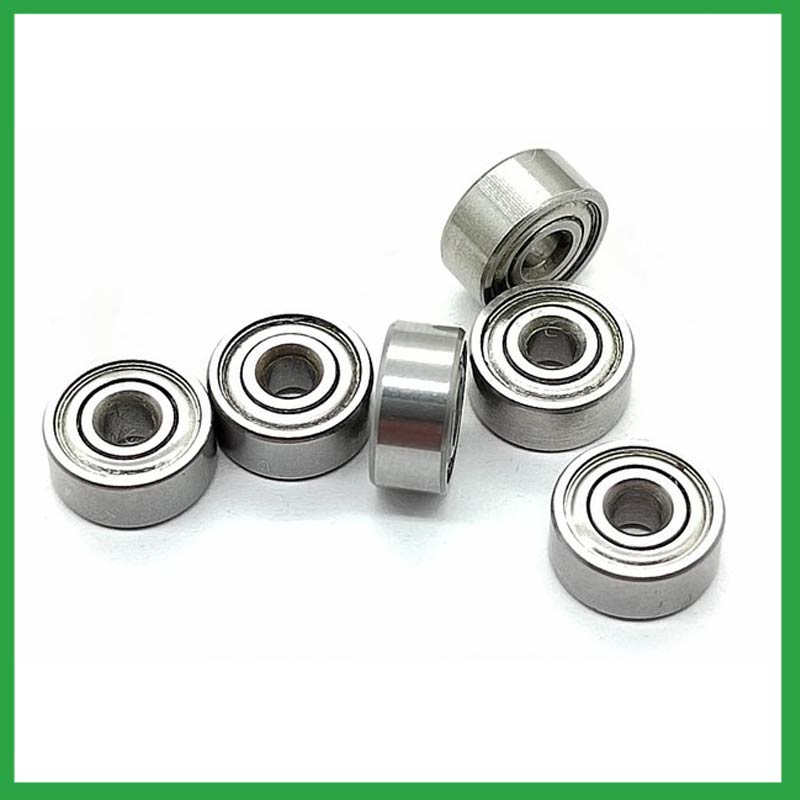
16.What is the role of ball bearing damascus steel in reducing friction and wear in automotive applications, such as wheel hubs and transmissions?
When a load is applied to a ball bearing, the ball bearing damascus steel roll freely between the inner and outer rings. This rolling action significantly reduces friction compared to sliding contact, resulting in smoother rotation and reduced wear.

